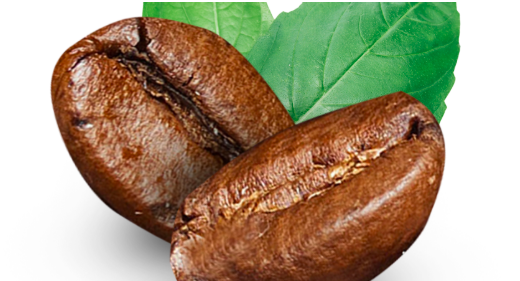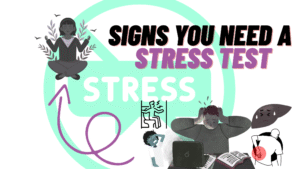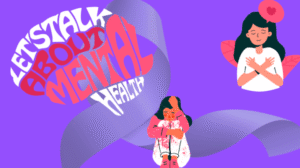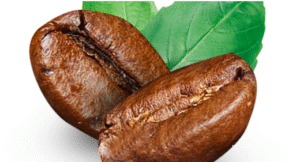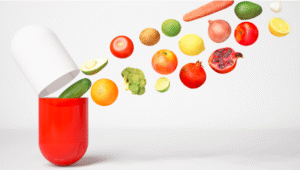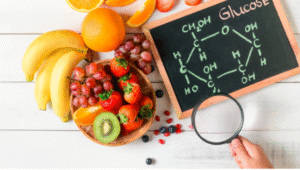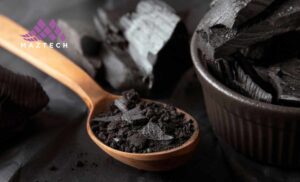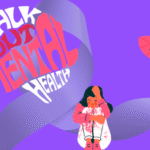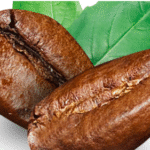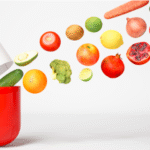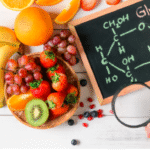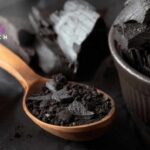Introduction: The Coffee Dilemma
Does coffee count as water intake? The Shocking Truth About Office Workers: The Problem with Coffee
Consider this: It’s 10:30 AM, your inbox is full, the deadlines loom, and you’ve already had two cups of coffee. You notice the water bottle on your desk, still full. You begin to wonder whether or not drinking coffee equates to drinking water. Or, does drinking coffee count as water intake when you’re trying to stay hydrated during work?
It’s a question for busy people. Isn’t coffee essentially water? Shouldn’t it keep you hydrated? The short answer is: Yes, coffee does encourage you to consume more fluids, but there is a catch. Caffeine in coffee has a mild diuretic effect, meaning it will cause your body to lose fluids faster, particularly if you consume large quantities.
In this blog article, we will break down the science behind hydration, examine if caffeine makes you hydrated, and compare it with other vegetable-based beverages. We are going to give you practical tips on how to consume more water without having to eliminate your caffeine.
Understanding Hydration and Your Daily Needs
For the majority of employed adults, staying hydrated means drinking 2 to 3 litres (8 to 12 cups) of water per day. It is not simply a matter of not feeling thirsty; staying hydrated also matters.
Energy: You might get tired and be unable to concentrate even if only partially dehydrated.
Mood: Staying hydrated can improve your mood and make you less irritable.
Productivity: Your mind and body function best when they are properly hydrated.
Water is the ultimate beverage, but several other beverages, such as coffee, may assist you in meeting your daily fluids. But does coffee do the job?
Does Coffee Help You Stay Hydrated?
Coffee’s Water Content vs. Caffeine’s Diuretic Effect
At first glance, coffee resembles a liquid that you can drink. After all, most of an 8-ounce glass of coffee is water. But coffee does contain caffeine, which is a natural stimulant that may make some individuals urinate more.
Some folks believe that coffee “doesn’t count” as a way to hydrate since it increases urination, which resultss in losing a bit more fluid. The reality is more nuanced.
Does Drinking Coffee Count as Water Intake?
Research has proved that bean extract does contribute to the liquids you consume daily, particularly if you consume it daily. Your body becomes accustomed to caffeine over time, and its diuretic effect decreases.
So, definitely, bean extract is included in your hydration goal. But here’s the catch: it’s not quite as good as regular water. If you’re drinking lots of coffee throughout the day and not water, you might be slightly dehydrated.
Is bean extract’s Diuretic Effect a Concern?
For the average healthy individual, it is not dehydrating to have 3 to 4 cups of coffee per day. However, in individuals who are sensitive to caffeine or consume over five cups of coffee a day, the diuretic effect may become active and lead to:
- Frequent visitss to the toilet
- Mild fluid imbalance
- Headaches that may be due to dehydration
Is Coffee Hydrating?
Let’s get to the point: Does drinking coffee count as water intake?
Yes, caffeine does help with hydration because it is mostly water.
But coffee isn’t the best way to stay hydrated because it has mild diuretic effects, especially if you drink too much of it.
And to reply to our second question, Yes, but drinking coffee alone for hydration is like consuming cookies aalone for nutrition: it works in some respects but not in others.
Pain Points for Working Individuals
Many workers inadvertently substitute coffee for water, which may cause problems:
Headaches: Due to insufficient drinking of water or insufficient intake of coffee.
Not enough sleep: Since caffeine may remain in the body for a maximum of six hours.
Energy crashes: It may keep you more alert for a brief time, but it may also cause you to feel tired later.
Restlessness: Excessive consumption of caffeine may aggravate anxiety if you have high work stress.
Acidity and stomach discomfort, particularly with black or strong coffee.
If this is you, you may want to consider the amount of water you drink relative to the amount of bean extract you consume.
Coffee: The Good and the Bad You Should Know Before Making the Switch
| Pros of Coffee | Cons of Coffee |
| Boosts alertness and focus | Can cause jitters, anxiety, and restlessness |
| Rich in antioxidants | May lead to dehydration in excess |
| Improves short-term memory | Can disrupt sleep |
| Enhances physical performance | Can cause stomach irritation |
| May reduce the risk of certain diseases | Can cause caffeine dependency |
| Social and cultural enjoyment | May temporarily raise heart rate |
Why Consider Plant-Based Tea Instead of Caffeine?
Plant-based herbal and non-herbal teas can be a healthier option:
Not harsh on the stomach: No issues with acidity.
Improved hydration: Most of them are caffeine-free.
Extra nutrients: Vitamins, minerals, and antioxidants are some of the other nutrients.
Relaxes you: Perfect for tension-filled jobs.
How to Transition from Caffeine to Plant-Based Tea
- Replace Gradually:
Begin by substituting one cup of coffee a day with a herbal tea of your choice. If you gradually make changes, you may not have to endure caffeine withdrawal symptoms such as headaches and mood swings.
- Experiment with Different Flavors
- Experiment with a few different blends until you find the ones that you enjoy the most:
- Peppermint is refreshing and cool, and it makes you concentrate.
- Chamomile is soothing and nice to drink at night.
- Hibiscus is tangy, full of vitamin C, and doesn’t contain any caffeine.
- Lemon ginger is delicious, great for your immune system, and great for your digestive system.
- Keep Variety at Hand
Have some tea in the house or workplace so you have one to choose from, depending on your mood or need. This prevents you from needing caffeine.
- Don’t over steep
If you oversteep herbal teas, they become bitter. Use the suggested steeping times for the best taste.
- Stay Consistent
It could take your body one to two weeks to get used to lower levels of caffeine. Stay focused and remember why you’re makingg the change: to sleep better, worry less, or digest food better.
- Enhance with Natural Add-Ins (Optional)
For more flavour and health benefits, add honey, cinnamon, or fresh lemon to your tea.
- Listen to your body
You should notice that your mood, sleep, and energy improve in the long run. Adjust the pace of your transition according to how you feel.
Limitations of Coffee vs. Benefits of Plant-Based Teas
Limitations of Caffeine:
Nervousness and crashes: Excessive caffeine causes anxiety, restlessness, and exhaustion soon.
Acidity: Sensitive individuals might experience acid reflux or stomach discomfort.
Risk of dehydration: It is a mild diuretic, which causes you to urinate more.
Sleep issues: Nighttime coffee can cause difficulty in attaining deep sleep.
Plant-Based Tea Benefits:
Soothing and hydrating: Naturally soothing and facilitates hydration.
Nutrient-rich: Most herbal teas are rich in vitamins, minerals, and antioxidants.
No caffeine crashes: No crash from caffeine gliding energy that doesn’t get burned off quickly.
Supports wellness: Health aids. Some teas aid digestion, immunity, and sleep.
Popular Plant-Based Tea Options, Market Value, and Daily Use Guide
| Tea Option | Market Value | Benefits | Quantity | Daily Use | Habitat | Where to Find |
| Green Tea | ~$14B+ | Antioxidants, mild caffeine | 1 tsp leaves | 2–3 cups | Asia | Supermarkets, online |
| Chamomile | ~$900M+ | Relaxation, digestion aid | 1–2 tsp flowers | 1–2 cups | Temperate regions | Herbal stores, online |
| Peppermint | ~$700M+ | Refreshing, aids digestion | 1 tsp leaves | 1–2 cups | Cool climates | Grocery stores, online |
| Hibiscus | ~$500M+ | Vitamin C lowers BP | 1–2 tsp petals | 1–2 cups | Tropical areas | Specialty tea shops, online |
| Rooibos | ~$650M+ | Caffeine-free, antioxidant-rich | 1 tsp leaves | 2–3 cups | South Africa | Health stores, online |
| Lemongrass | ~$300M+ | Immunity boost | 1–2 tsp | 1–2 cups | Tropical Asia/Africa | Farmer’s markets, online |
| Ginger | ~$4.3B (root market) | Anti-inflammatory | 1–2 slices | 1–2 cups | Tropical Asia | Grocery stores, spice shops |
Daily Routine Plan for Better Hydration
Morning: A small amount of caffeine in green tea to wake up gradually.
In the afternoon, consume hibiscus or peppermint tea to stay hydrated and improve mood.
In the evening, the chamomile tea can aid sleep and relaxation.
Workplace Hydration Checklist
Having a refillable water bottle at your workstation allows you to drink water throughout the day without ever needing to leave your seat.
Stock up on herbal teas. They are delicious and a great source of health that also keeps you hydrated.
Place reminders on your phone or computer to hydrate. These will remind you nicely not to forget water breaks when you get busy.
Track how much water you consume on a daily basis with a hydration app or by labeling your bottle.
Lemon, cucumber, or mint will make water more enjoyable to drink.
Conclusion – Coffee Counts, but Tea Nourishes
So, does coffee count as water intake? It is, to a certain extent, but it’s not the best method of staying hydrated. You may consider it as part of your regular fluid intake, but if you only drink it, you may become a bit dehydrated, get tired more quickly, and be unable to sleep.
Does drinking coffee count as water intake? Yes, but you have to be in balance. If you substitute one cup of coffee with a cup of plant tea per day, you’ll be hydrated, you’ll be healthy, and your energy will level.
The moral of the story is to appreciate your caffeine, but drink plenty of water and herbal teas too. Your body and work will thank you.
Yes, coffee does contribute to your daily fluid intake. While caffeine is mildly diuretic, moderate coffee consumption still helps hydration.
Both tea and coffee provide fluids. Tea has less caffeine, so it may be slightly better for hydration if consumed in large amounts.
No, coffee should not replace water entirely. While it hydrates, plain water is still the most effective source for daily hydration.
Aim for 6–8 cups of plain water daily, plus any fluids from coffee or other beverages. Balance is key for hydration.

